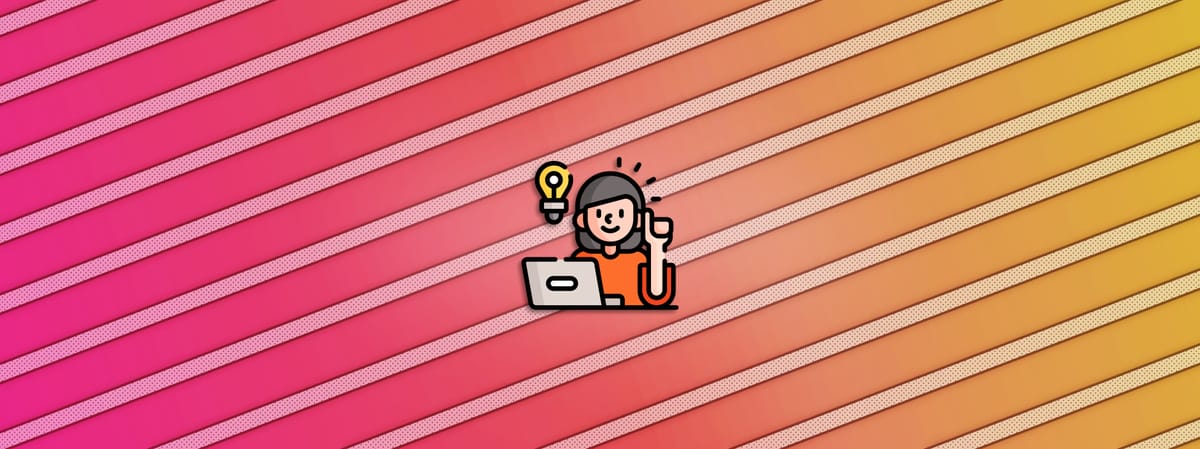The Joy Of Learning
Stop stagnating and instead re-embark on the journey of endless discovery…

Stop stagnating and instead re-embark on the journey of endless discovery…
A surprising number of people have said some variation of the following to me in conversation:
You have a full-time job [like me] and a toddler at home. I don’t understand how you have the time or energy to do all this research and make these tutorials.
For context, this is the 75th article I’ve published on my website in the past year and ten months. (Currently averaging 40.3 tutorials per year, or 3.36 per month).
The simple answer is because I love learning and I hate stagnation. And one of the best ways for understanding something on a deeper level, is to teach. So I value teaching and choose to make it a priority.
I’ve decided to trade some of the free time I would normally spend gaming on my PS5 or pursuing other hobbies, for gaining and sharing knowledge.
And it's actually been a remarkably good trade-off.
Active Consumption
Just like playing video games, learning something new is all about active consumption.
Instead of passively scrolling through TikTok or Instagram, for example, you participate to a much higher degree. You actively and intentionally seek out knowledge, make connections between topics, explore, and figure things out.
You make strategies and discoveries, and challenge yourself to grow and improve. Which ends up making you feel good.
Pathway To Pleasure
The act of acquiring knowledge changes your body's chemistry.
It releases one of the four feel-good hormones in your body, dopamine, which plays an important role in making you feel pleasure.
As part of the brain’s reward system, dopamine is fundamentally involved in key functions such as learning, reinforcement, and attention. The brain reacts to novelty by producing dopamine, which makes us want to go exploring in search of a reward.
And so when you learn something new, or connect old knowledge in a new way, it can quite often be a joyful experience – that you'll want to continue experiencing.
Have you noticed that when you finally connect the dots and have a brilliant ‘aha’ moment, you smile and feel good? That's your brain rewarding you (/itself?) for your newfound knowledge.
It's similar to what happens when you hear a great joke – which is essentially an unexpected discovery – you laugh and feel good.
It makes sense that we're wired this way, because gaining knowledge is, and has historically been, advantageous to us as a species. And so it's beneficial to motivate ourselves to keep seeking it out.
By continuing to learn, you continue to reward yourself, both physically and intellectually.
Which leads to a very important point:
Play The Infinite Game
I view learning as an infinite game, and not something that ends after you finish school.
Kids are learning constantly, and we shouldn’t stop just because we become adults.
You simply don't know just how little you actually know about a subject until you start learning more about it. Going to university or taking another educational course is just the tip of the iceberg for learning – in any field, including VFX.
I would estimate that 95% of what I know about Nuke and compositing, I have learned after I finished university.
So, in my opinion, one of the most important things schools can teach is the joy of learning. Not just passing on information, but fostering curiosity, instilling an adventurous sense of exploration, and bolstering independent learning.
Because the goal is to continue to learn and improve. And, in the case of VFX and movie-making, to get as close as possible to one thing:
Unhindered Creativity
'Mastering’ a tool such as Nuke is all about removing restrictions on your creativity.
Our job is to make a certain thing – be it an exploding spaceship or a bloodthirsty creature – and we do that to the best of our ability with the tools and techniques available to us.
The more techniques you learn, and the more productive ways of operating your software that you employ, the better equipped you are to make that thing well. And the more freely you can let your creativity flow into your work.
You’ll have a greater library of knowledge to pull ideas from, and more experience in choosing the right approach for the job. And, learning new things often spark ideas which boost your creativity, so it becomes a positive feedback loop.
But there is a price to pay up front for this privilege: temporary discomfort.
Accept The Initial Agitation
In order to learn, you have to focus.
And when you try to focus, the brain’s first response is stress. There is friction before you gain any momentum. And your mind might wander all over the place at first to avoid the discomfort.
But you have to accept the initial agitation. Researcher Billy Oppenheimer and neuroscientist Andrew Huberman describe it well:
I think about this twice a day.
— Billy Oppenheimer (@bpoppenheimer) December 12, 2023
Every morning when I sit down to read & then when I sit down to write, I say to myself,
"Accept the initial agitation."
When you try to focus, Andrew Huberman explains, "the brain circuits that turn on first are of the stress system."
Meaning:… pic.twitter.com/1VQsNgTlDh
If you’re struggling to get going on a task, I would suggest forcing yourself to do it for five minutes.
Five minutes, that’s all. And if you still can’t settle in and begin the task, that’s fine. But more often than not, once you’ve done five minutes of work – researching, reading, writing, tinkering in Nuke – you’ll find that you want to continue.
I’ve written about the edge of chaos before. There is friction at the edge of chaos; there’s agitation. Because you are introducing the unknown to the familiar, and they tend to clash at first.
But before long, you’ll realise it’s the best environment for learning. It’s where you build and bridge your pillars of knowledge.
So accept the initial agitation, and remember, nothing will be perfect right away.
I hope you found this article useful. For more productivity tips & tricks, see Productivity.



